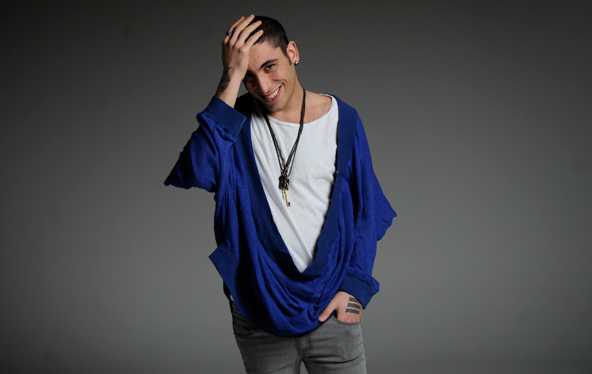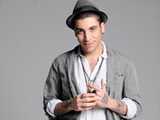Ah, to be 25, dressed like a Left Bank buccaneer and belting out irresistible Anatolian pop before a televised audience of 125 million kitsch-craving European fans. Such was Can Bonomo’s perch at the Eurovision Song Contest last month. The dashing young Turk, from a Sephardic Jewish family in Izmir, represented Turkey in Eurovision. Though he did not win — the prize went to Swedish-Moroccan singer Loreen — Bonomo was one of the more compelling singers to take the enormous and purpose-built stage in Baku, Azerbaijan. His song “Love Me Back” was performed as a jaunty set piece, variously channeling Pirates of the Caribbean (the ride), Show Boat and Ali Baba. A spicy summer mix, you might say. Bonomo stopped whirling for a moment to talk to us about “Istanbul music” and more.

What was your craziest Eurovision experience?
There’s not much that is not crazy when it comes to Eurovision. It’s very hyped all over Europe. I’ve had a lot of crazy experiences, from getting chased by cops for making music on European streets to broadcasting my birthday via press conference to all over the world.
Is it correct that you wrote the words and music to “Love Me Back”? Did you translate the lyrics from Turkish, or was the song originally written in English?
It was written completely from scratch in English. Eurovision is an international contest, so if the lyrics were in Turkish only the Turkish people would have understood it. This way it reached a wider audience. However the song would have also sounded quite good if it was in Turkish, since the Turkish language is very melodic and very suitable for songs.
Do American pop artists influence your music or style?
I don’t want to sound condescending, but as a personal preference I don’t listen to pop that much. I’ve heard Madonna is coming to Turkey for a show sometime soon; I don’t think I’ll be going. On the other hand I’m really excited for Red Hot Chili Peppers concert. I’ve always been a rock ‘n’ roll type of guy. Even when I was a kid I grew up with the Kinks, the Beatles and the Rolling Stones. My style is actually more influenced by poets than musicians. I’m a great admirer of American poetry and literature. I love Bukowski. I even have a tattoo from one of Gwendolyn Brooks’s poems.
In both your Eurovision performance and on your Web site, you can be seen wearing some very interesting styles. Is it a Turkish designer who makes the clothes you wear for shows?
The very first performance I did, I was wearing my own clothes straight from my closet. I only work with designers for official events like the Eurovision or song videos. I don’t have a designated designer. For Eurovision, though, Giray Sepin did the costumes for the dancers and Hatice Gokce did mine. My style is not that specific to a region or anything like that, but it does have slight ethnic touches.
After Eurovision, what comes next? Can we expect more songs in English? Is performing in the United States something you would like to do in the future?
I would absolutely be delighted to come to the U.S. to perform. But I want my lyrics to have a powerful emotional impact, and I don’t think I’m ready to deliver that punch in English yet. I had to postpone the recording of my second album because of Eurovision. Better late than never, and we are finally starting on that. I will also be publishing a poetry book in a few months. I’ve been getting a lot of praise from famous writers and poets here in Turkey. I’m super-thrilled about that.
I watched Eurovision with a group of Israelis who said some of your music reminded them of klezmer. Was klezmer an influence on you musically growing up in Izmir?
Turkish music shares a lot of instruments with klezmer music. However, I prefer to call the music I make “Istanbul” music. It’s a combination of sounds, instruments, bazaar salesmen yells, the whole nine yards. I want people to feel the chaotic energy of Istanbul in my albums.
This post has been revised to reflect the following correction:
Correction: June 11, 2012
In an earlier version of the post, the singer’s name was misspelled in the headline. His name is Can Bonomo, not Cam Bonomo.
via Introducing Turkey’s Eurovision Breakout – NYTimes.com.

